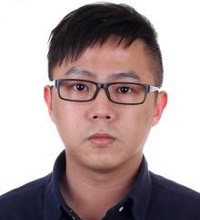
MAES Invited Speakers_2024

Assoc. Prof. Zili Wang, Zhejiang University, China
Zili Wang is currently an Associate Professor at the School of Mechanical Engineering, Zhejiang University. His research interests include metal tube forming, design and manufacturing of metal plastic forming equipment, reliable prediction of product performance driven by intelligent algorithms, multi-performance simulation analysis and optimization design, digital-twin, etc. He has held or participated in 15 national research projects, and published over 60 SCI papers in journals like Journal of Manufacturing Systems, Robotics and Computer-Integrated Manufacturing, Applied Soft Computing, Advanced Engineering Informatics, Materials & Design, Expert Systems with Applications, etc. He has been granted 2 US patents, 1 Japanese patent, and over 30 Chinese invention patents. Dr. Wang is a young editor of Journal of Intelligent Manufacturing and Special Equipment, and a reviewer for over 20 international journals. He has been selected as a 2023 Outstanding Reviewer for Future Generations Computer Systems Journal and won a Gold Award at the Nuremberg Global Invention Exhibition in Germany 2023.
Speech Title: Complex metal tube bending forming and digital-twin technology
Abstract: Metal tubes, known as the blood vessels of industry and the arteries of engines, are widely used in fields such as aerospace, nuclear power, automobiles, and architecture. The tube bending section is the weakest part of the pipeline system. Severe accidents and significant economic losses are often caused by tube bending forming problems, such as fluid fluctuations caused by cross-sectional distortion resulting in the accuracy loss of the fluid flow control. The three globally recognized technical difficulties in tube bending forming are: thinning and wrinkling, cross-section distortion, and bending springback. To address these technical challenges, we have conducted more than ten years of research and achieved innovative breakthroughs in ultra-thin walled tube cracking and wrinkling suppression, small bending radius tube cross-sectional shape preservation, and large bending angle tube springback prediction and compensation. We have developed a digital twin system for metal tube bending forming, which connects the design and manufacturing stage, and applied those technologies to multiple industrial fields.
